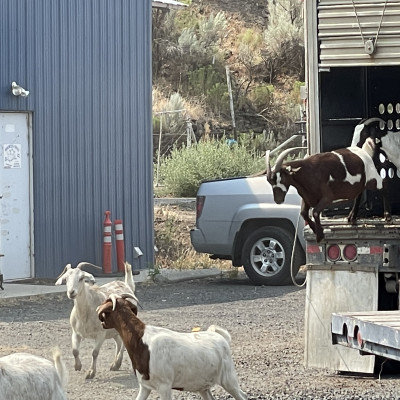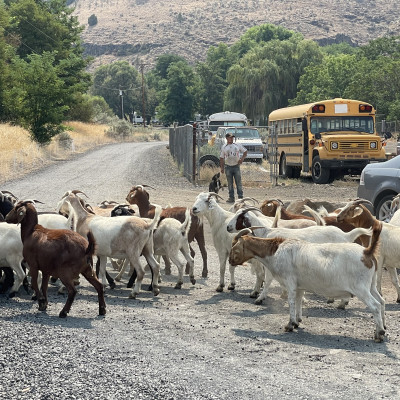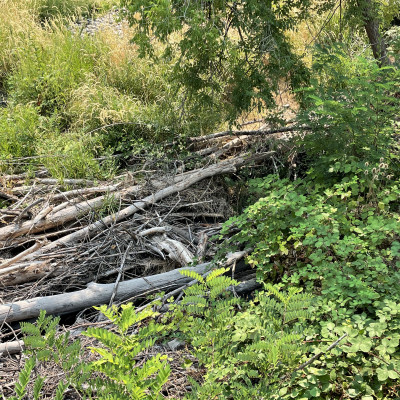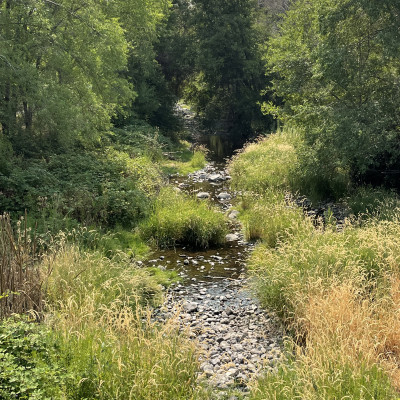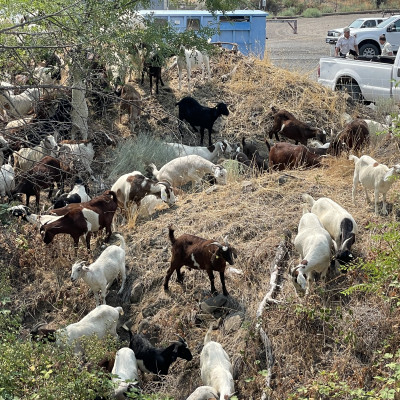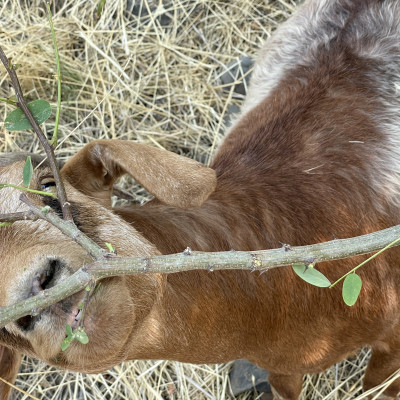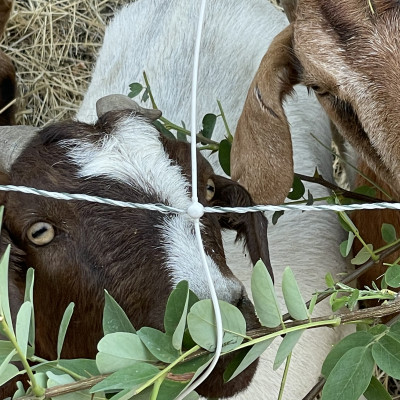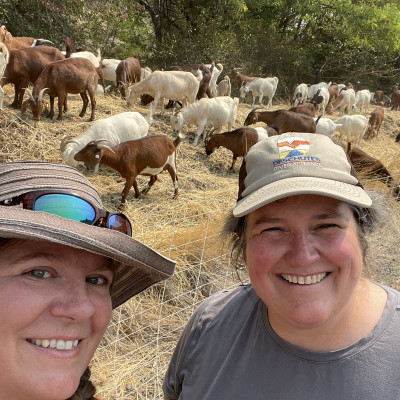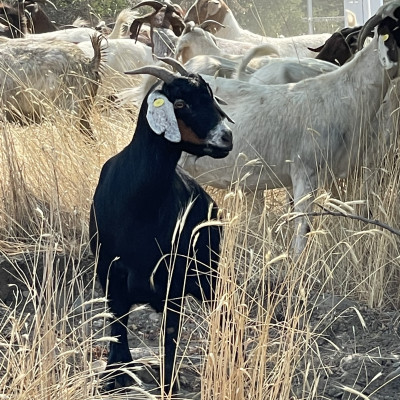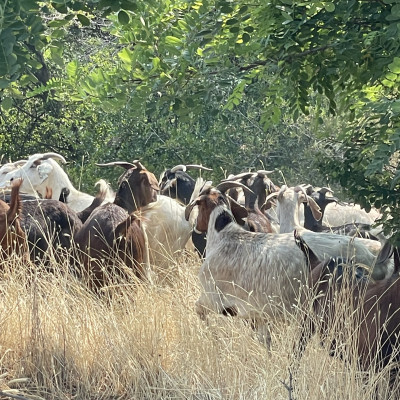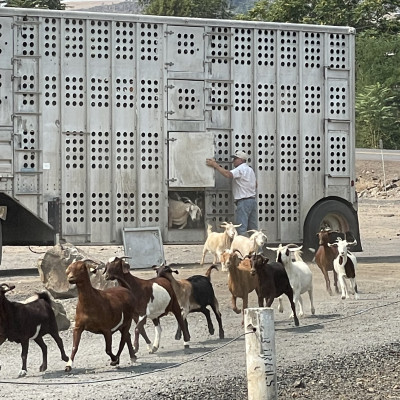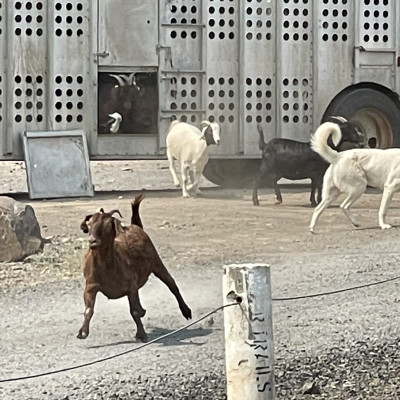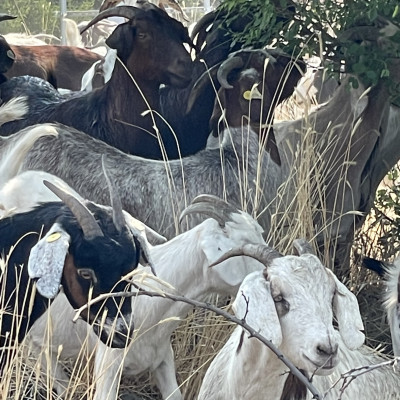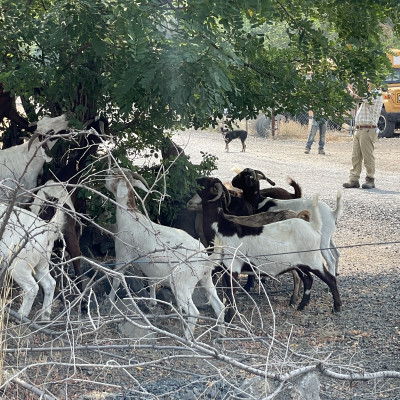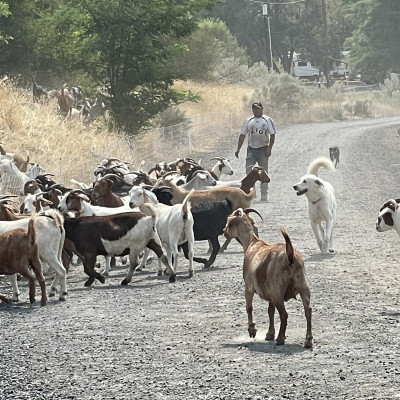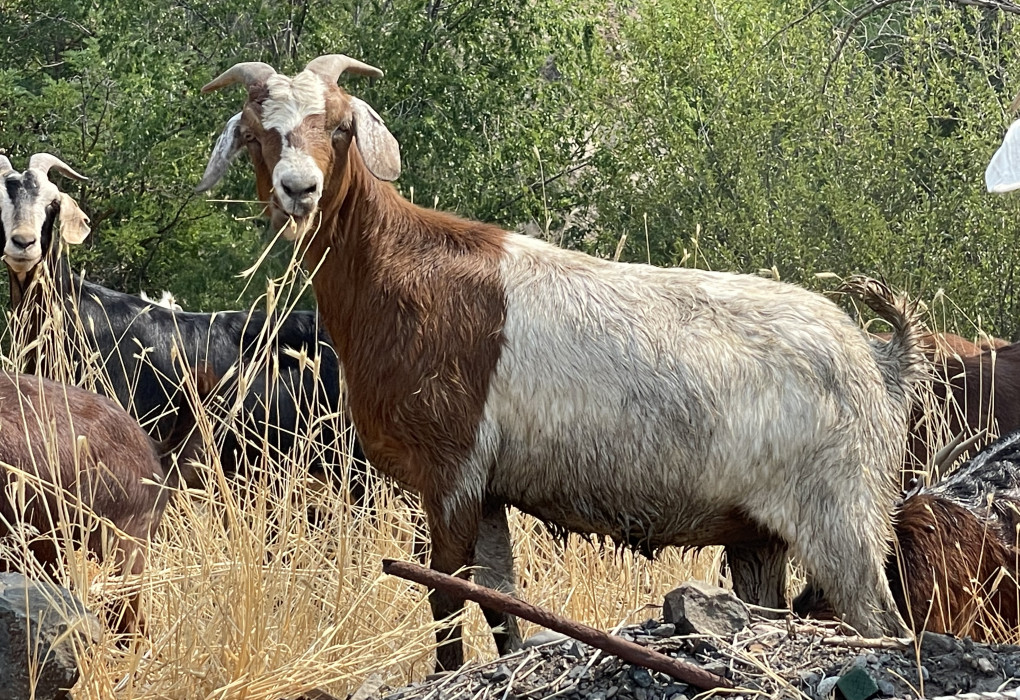Bring on the Goats! A Small Part of the Larger Picture
It was the middle of May on the Deschutes, the time of year when the salmonflies are prolific and unavoidable. Tom Derry, Liz Perkin, and I were walking up the tracks to Tommy’s secret fishing hole. The wind was on the uptick and we had a long hike ahead of us. Talk turned to work, as it almost always does, and we were discussing the question we recently had from a major donor: What can we do to remove invasive blackberries from Bakeoven Creek in order to increase water flow for wild fish? A few feet behind Liz and Tom, and thinking mostly of the trout I would invariably not catch, I chimed in, “How about goats?”
Fast forward to a hot August day in Maupin. I’m meeting with Sarah Cloud, Executive Director of Deschutes River Alliance (DRA), as well as local resident Randy Klettke, a man with his own passion for the river and the person that brought my random comment to fruition. We are waiting for the Goat King to arrive.
Bakeoven Creek is a small tributary of the Deschutes that flows down from the Shaniko area and into Maupin. At the mouth there are choking Himalayan Blackberries, Star Thistle, and other non-native plants that disrupt the flow of cool water into the Deschutes. This cool water becomes a refuge for steelhead traveling upstream to spawn, or for mainstem fish trying to survive climate-fueled hot water temperatures, among other things. The invasive and overgrown plants in Bakeoven drink up more than their share of water, leaving low flows and warmer temperatures behind.
But here’s where the magic happens...
We are introduced to Ray Holes, or, as we like to call him, The Goat King. Ray is a rancher, but not just any type of rancher. Ray raises Spanish-Boer cross goats and utilizes them as targeted grazing specialists. On this day, we watch as two large livestock trucks make their way across the Deschutes River Bridge and into the overflow parking for the city park. As the doors open, goats start jumping out - 600 of them! Accompanied by eight herding dogs and two Peruvian goat herders, the goats beeline for the creek’s edge. After only 20 minutes or so, you could see a notable difference in the landscape. Each goat eats approximately 4lbs of foliage every day. Multiply that times 600 goats over 30 days and you’ve got yourself some progress without the use of herbicides that threaten the health of the river and its native fish. Go Goats, Go!
As an added bonus to this project, a member of both Native Fish Society and Deschutes River Alliance donated a primetime week-long fishing spot in British Columbia at the Babine Steelhead Lodge in order to help raise funds for our missions. His only requirement was that we work together on a project in the lower Deschutes basin. After a few meetings, we agreed that this project was ideal and a great way to do good for the river, the wild fish that live there, and the community of Maupin.
Over the next month, I will be checking in with the goats and sharing their progress. Later this fall, we will be seeking volunteers through Women for Wild Fish, Native Fish Society, and Deschutes River Alliance, to help remove root wads and begin restoring native plants along Bakeoven Creek. We're excited to have a collaborative partnership with DRA that builds a community of folks engaged and excited about the health of the watershed and the future of our wild, native fish.
~~~~~~~~~~~~~~~
*If you are interested in volunteering or donating to this project, please contact Tracy Buckner.
**Goats for Good - Babine raffle tickets will be on sale Monday, September 13th through Thursday, October 14th, 2021 for $100.
